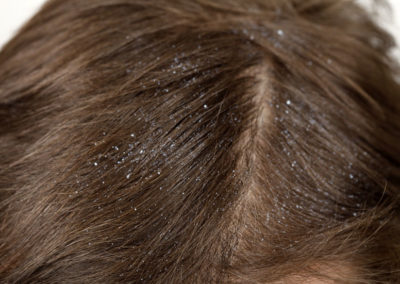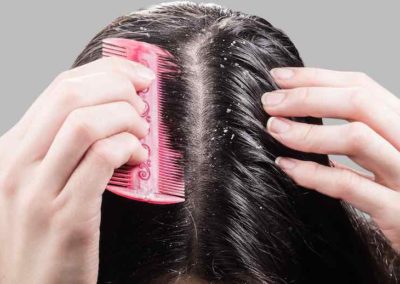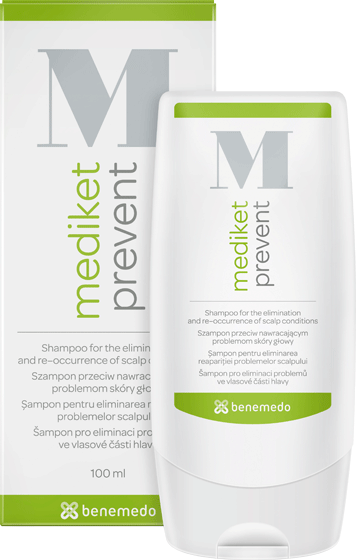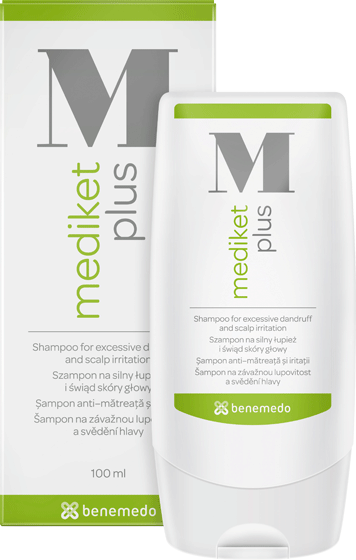Dandruff
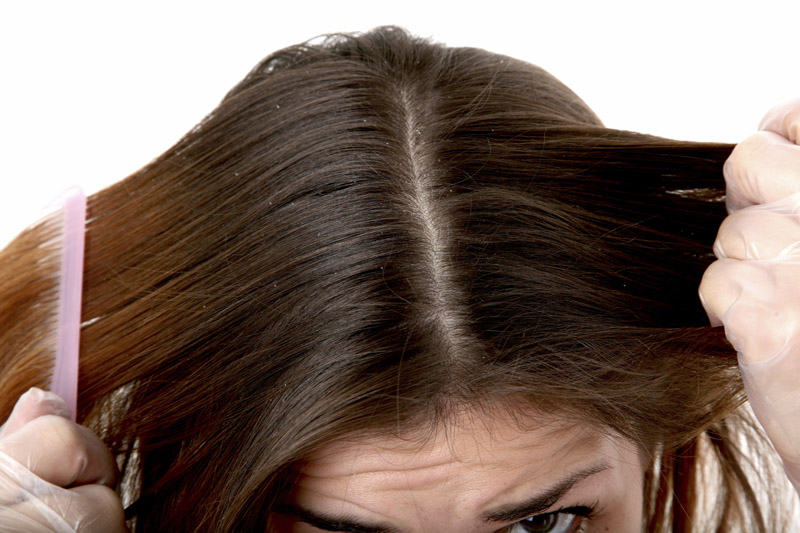
Dandruff is the shedding of dead skin flakes from the scalp in an excessive amount in connection with accelerated skin regeneration usually associated with yeast infection.
In more serious cases, dandruff is visible so it can makes one’s life uncomfortable. In its milder form, light dandruff flakes occur at the rootlets, whereas in a more serious form they are present along the entire hair length and are visible also on the shoulders.
Dandruff can develop on both the scalp with increased sebum production (greasy dandruff) and dry skin (dry dandruff). Although dandruff is not a serious, life-threatening disease, it makes life uncomfortable particularly from aesthetic point of view, not to mention the psychological impact. Dandruff affects up to 50% of the population, more frequently men than women.
What causes Dandruff?
Dandruff is most often caused by the presence of Malassezia yeasts which are commonly present on the scalp. If, however, the production of sebum increases, these yeasts begin to reproduce more quickly and and begin to produce scalp-irritating substances. This irritation subsequently results in accelerated scalp cell regeneration and dandruff formation accompanied by itching. Increased dandruff formation can also be influenced by genetic dispositions, hormonal changes, excessive brushing and massaging, lack of vitamins and minerals (Vitamin B, selenium, zinc), application of agressive shampoos and other hair cosmetics, sudden temperature changes, stress, improper rinsing-off of hair cosmetics, too frequent shampooing, fungal or other disease (psoriasis, seborrheic dermatitis). The intensity and occurrence of dandruff also changes depending on the weather – in the colder months the condition deteriorates due to transitions from outside frosty weather to overheated premises and vice versa.
How to eliminate dandruff
The first step is to apply appropriate hair cosmetics – special anti-dandruff shampoo. Even in the periods when the amount of dandruff is reduced or disappears it is necessary to apply suitable products preventively. As an active substance, these products contain e.g. octopirox which, in addition to affecting yeast-like organisms, also soothes the scalp. The second important step to reduce dandruff formation is the change of diet to increase intake of vitamins and minerals. A healthy lifestyle should also include enough sleep, relaxation and overall psychological wellbeing. If all measures fail, consult your dermatologist.
Looking for a treatement?
Mediket Prevent
dandruff prevention.
